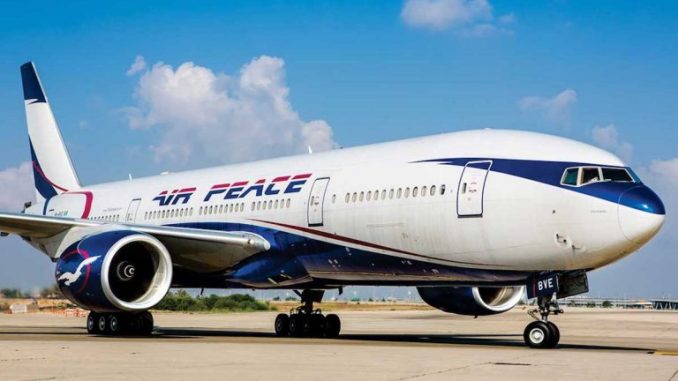
Major Nigerian airline Air Peace was recently ordered by the Lagos High Court to respond to specific inquiries made by the Foundation for Investigative Journalism (FIJ) regarding a flight on October 12, 2022. This ruling is made in the midst of a legal battle between the two parties, in which Air Peace claims that FIJ made false accusations in a thorough investigation report. The report, which was probably released online and might have been distributed through other media platforms, examined the details of the Lagos-Anambra flight and raised questions about possible safety violations by Air Peace. The airline fiercely refutes these accusations and maintains that it puts passenger safety first by abiding by industry standards and the tightest safety procedures.

Air Peace filed a libel lawsuit against FIJ, alleging that the airline’s reputation was damaged by the foundation’s report, which implied that safety procedures were not followed during the relevant Lagos-Anambra flight. According to Air Peace, they follow industry best practices and all safety regulations to the letter. In contrast, FIJ is defending itself, saying that the report was accurate and fair. In order to bolster their defense, FIJ sent Air Peace a series of interrogatories (questions) aimed at obtaining comprehensive details regarding the particular aircraft that was part of the flight operation. These questions were met with resistance from Air Peace, who claimed they had no bearing on the defamation lawsuit. The LagPos High Court Judge was not persuaded, though.
Court Decision
Siding with FIJ, the Lagos High Court Judge emphasized the significance of the questions in forming a clear picture regarding the airworthiness of the aircraft involved in the flight on October 12. The judge is enabling FIJ to obtain information that might bolster their allegations regarding the flight’s safety procedures by compelling Air Peace to furnish specifics regarding the aircraft’s model, year, engine type, and maintenance history. This data can be used to show whether the aircraft complied with all legal requirements and had been correctly maintained in line with accepted industry practices. On the other hand, Air Peace’s discovery of any problems with the aircraft’s upkeep or suitability for use might validate FIJ’s accusations.
Air Peace is now obliged to respond to an extensive series of inquiries concerning the aircraft that was originally assigned to the flight on October 12th. The purpose of these inquiries is to extract comprehensive details regarding the characteristics of the aircraft, such as the maker, year of model, kind of engine, and maximum capacity. A thorough accounting of the aircraft’s maintenance history is also required from Air Peace, with special attention to any maintenance checks carried out prior to the in question flight. This includes sharing information about any flaws or fixes that were found and fixed during those inspections. By mandating this degree of information from Air Peace, the court is giving FIJ more leverage to make a compelling case for the aircraft’s airworthiness aGt the time of the flight.
Possible Consequences
The outcome of the defamation case may be significantly impacted by the court’s ruling. Determining whether or not FIJ’s allegations regarding the airline’s safety procedures are true or untrue may depend greatly on the details provided by Air Peace in response to the court-mandated inquiries. The defamation case may be dropped if Air Peace’s responses show a clear commitment to safety procedures and address any potential problems mentioned in the FIJ report. On the other hand, should Air Peace’s answers indicate any carelessness or breaches in safety protocols, this could greatly bolster FIJ’s case and possibly result in a ruling in their favor.
The court’s decision could affect how the public views Air Peace’s safety procedures in addition to the current legal matter. Significant media coverage may result from the specifics of the lawsuit and the information that surfaces during the discovery phase. Public perception of Air Peace’s dedication to passenger safety may be shaped by this coverage, which may also influence consumer decisions. Air Peace may be able to lessen any bad press if it can successfully respond to the accusations and show that it is dedicated to safety. Public trust may, however, decline if the airline is seen as defensive or unwilling to be open and honest.

This case also emphasizes how crucial investigative journalism is to keeping influential people in check and advancing openness in the aviation sector. The FIJ’s examination of Air Peace’s operations highlights possible safety risks and forces airlines to put passengers’ safety first. Investigative journalism can aid in ensuring that airlines are operating in compliance with the strictest safety regulations by bringing these issues to light.
Keep abreast
This narrative is still evolving. Observe hotlinemagazines

Be the first to comment